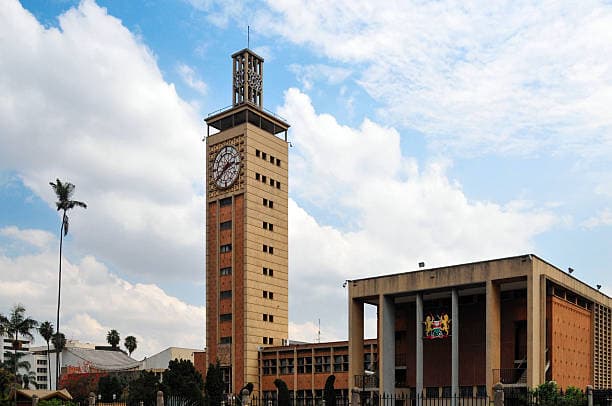We're loading the full news article for you. This includes the article content, images, author information, and related articles.
A constitutional amendment bill seeks to add special seats for women in both houses of Parliament to enforce the two-thirds gender rule, allocating positions by party results after elections.

Nairobi, Kenya — 2025-09-09 12:00 EAT. A constitutional amendment bill has been introduced in Parliament to create special seats for women in both the National Assembly and the Senate. The move aims to enforce the two-thirds gender rule by allocating additional seats to under-represented gender groups based on party performance in elections.
What happened now: Lawmakers, including women representatives and MPs, introduced a bill to amend Articles 90, 97, and 98 of the Constitution. If passed, the bill would top up legislative seats after each general election to ensure compliance with the two-thirds gender principle, with special seats allocated by party proportion. The measure would run for 20 years, extendable by 10 years with support from at least 233 MPs and 31 senators.
Why it matters: Women currently hold significantly less than one-third of legislative seats—23.2 percent in the National Assembly and even lower in the Senate—falling short of the constitutional requirement under Article 81(b).
Status: In draft form; requires two-thirds majority in both Houses for approval.
The Constitution, under Article 81(b), mandates gender parity in elective bodies, but Parliament has repeatedly failed to meet it.
Previous efforts—including the 2023 Constitution Amendment Bill—have advanced but stalled in committee.
Women’s representation equity remains a longstanding challenge, prompting repeated court orders to effect legislative change.
Constitutional Articles: Article 81(b) (electoral principle) and Article 27(8) (affirmative measures). The bill seeks amendments to Articles 90, 97, 98.
Mandates: Parliament must legislate to operationalize the constitutional gender rule; Judicial rulings have given Parliament deadlines to act.
Required Next Steps: The bill must pass second and third readings in both Houses with two-thirds support. It also requires party-level “zebra lists” to fill special seats.
Bill’s Memo: The principal objective is “to ensure the membership of the National Assembly and Senate conforms to the two-thirds gender principle provided for in Article 81(b) of the Constitution.”
Historical Advocates: Past rulings—including by the High Court and Supreme Court—found Parliament in violation of the Constitution for failing to pass legislation on the two-thirds rule.
Current Numbers: National Assembly: 81 women versus 264 men. Senate: 20 women versus 46 men.
Women’s Representation:
National Assembly women: 23.2 percent.
Senate: under one-third, meaning at least three more women needed.
Top-Up Provisions:
If no women elected, up to 104 seats may be added in National Assembly; 7 seats in Senate.
Duration: 20 years with optional 10-year extension.
Constitutional Provision: Article 81(b) mandates not more than two-thirds of either gender in elective bodies.
Governance: Enlarged legislature may increase wage bill and logistical complexity.
Gender Politics: Top-up seats risk being tokenistic unless paired with structural reforms.
Constitutional: Failure to pass this bill may trigger court-ordered dissolution of Parliament.
Will the Senate and National Assembly secure the needed two-thirds approval?
How will parties compile and validate zebra lists transparently?
What will be the fiscal and operational cost of expanded legislature?
Will marginalized groups (e.g., minorities, disabled women) be included in nominations?
2025-07-25: Bill introduced outlining special seats and amendment proposals.
2025-09-09: Current status—awaiting readings and legislative action.
TBD: Committee debate, vote schedules, public consultations.
Next action: Readings and voting timetables in both Houses.
Signals: Parliamentary debates, committee endorsements, controversy from opposition.
Deadline: Future court orders may force legislative action if current Parliament remains non-compliant.
Keep the conversation in one place—threads here stay linked to the story and in the forums.
Sign in to start a discussion
Start a conversation about this story and keep it linked here.
Other hot threads
E-sports and Gaming Community in Kenya
Active 9 months ago
The Role of Technology in Modern Agriculture (AgriTech)
Active 9 months ago
Popular Recreational Activities Across Counties
Active 9 months ago
Investing in Youth Sports Development Programs
Active 9 months ago